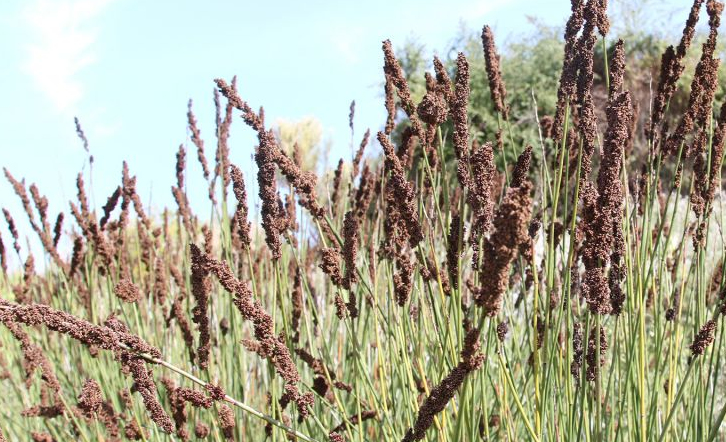“And when they had platted a crown of thorns, they put it upon his head, and a reed in his right hand: and they bowed the knee before him, and mocked him, saying, Hail, King of the Jews!” (Matt. 27:29).
One of the more interesting observations of the passion of Christ is that his persecutors preferred to mock him as a “false king” rather than punish him as a true malefactor. Their bowings, their buffetings, their robes, their crown, and their scepter are little more to them than the several acts of their tragic comedy where they spurn his kingdom and rant, “hail King of the Jews!”
But the reed they put in his hand as his scepter is the last, and possibly the worst mockery of all, for it strikes specifically at what is nearest him – the mutual interest between himself and his followers, which is to say, his truth and their trust. Isaiah 36:6 compares trusting in the pharaoh of Egypt to trusting in a staff of a dry, sapless reed – hollow, fruitless, helpless. This is why presenting Christ with a hollow reed as his scepter to complete the image of him they wanted to portray no doubt broke his heart more than all the rest.
And yet, what those who put this reed into his hand did not know is just how easily he could have transformed it into a rod of iron to break into pieces their renowned Roman scepter. Or how easily he that worked amazing wonders with a rod in the hand of Moses could have worked more and greater miracles in his own hand on them! For “the hand of the Lord is not shortened,” (Isa. 59:1).
But in the end, they could give him whatever scepter they desire, for there is no power – nor lack thereof – in that staff itself; his truth is not affected by it in the least. Because neither the sword nor the scepter matters without the strength of the arm behind it to wield it. Even if the scepter is made of straw, in the hand that spans the heavens and weighs the mountains (Isa. 40:12) it is able to accomplish anything God desires. (For it is God’s way to use the weak things of the world to confound the mighty.)
From the beginning of time, there have been those who mocked the claims of God and of his Son (2 Peter 3:3). But when Christ comes to judge the earth, what will become of these mockers? How will they feel when they see this King of Glory no longer bearing the shame and suffering of his passion, but clothed with majesty and honor, riding on the wings of the wind with an everlasting scepter of power in his hand (Ps. 18:10)? Full of dread and fear, they will cry to the rocks and mountains to fall on them (Rev. 6:16) and hide them from his presence, but they will not be heard. They will have no place to run for shelter. Instead, they will hear his voice from heaven, glorious and mighty enough to break the loftiest cedars, laughing them to scorn (Ps. 2:4).
Nothing is more incongruous with God’s kingdom than that which a hollow, withered reed represents. Isaiah calls his kingdom “a hiding place from the wind, and a covert from the tempest,” (Isa. 32:1-2). Paul calls it a kingdom that cannot be shaken (Heb 12:28), a kingdom that does not consist in word or form only, but in power (1 Cor. 4:20). Further, in God’s kingdom there is fulness of joy (Ps. 16:11), and it is so plenteous in goodness and truth that our needs can never deplete his bounty, and neither can his bounty ever empty his storehouse. For he is the water of life (John 10) and the source of life abundant (John 4:14, 10:10).
Contemplations:
- O my blessed Lord and Savior, you are the tree of life! How contradictory to your nature is it, then, when you are given a dry, dead reed as the scepter of your kingship. In truth, all other scepters bow, obey, and owe themselves to your scepter of righteousness for they could have no power if it was not given them from above (John 19:11). Why then did your hand willingly accept this mockery of majesty? Were you, even here, demonstrating your mercy by not breaking this bruised reed? (Isa. 42:3).
- I must confess, Lord, that I am bruised with the weight and the conscience of sin. And though you try me with difficulties and afflictions, you will not break me with utter destruction, nor burn me up among the tares with unquenchable fire. You have promised that you will not consume me (Matt. 12:20). You show the strength of your almighty arm, Lord, in supporting the bent and bruised reeds in your hand. You cursed the green, leafy fig tree (Matt. 21:19), and yet you accept and protect the weak and bruised reed.
Further References for Matthew 27:29:
John 19:3; Isa. 53:3; Matthew 20:19; Luke 23:36


